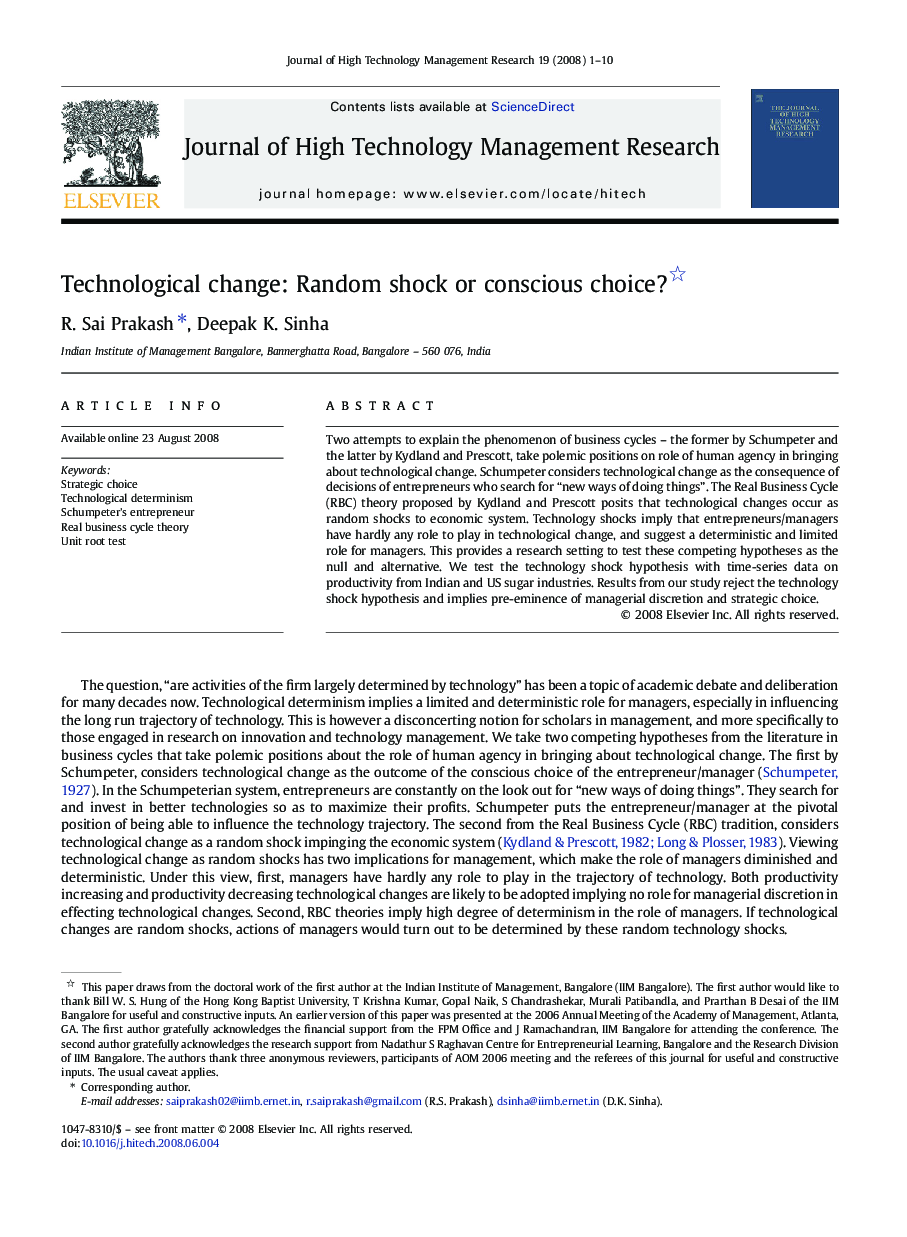| Article ID | Journal | Published Year | Pages | File Type |
|---|---|---|---|---|
| 1026686 | The Journal of High Technology Management Research | 2008 | 10 Pages |
Abstract
Two attempts to explain the phenomenon of business cycles - the former by Schumpeter and the latter by Kydland and Prescott, take polemic positions on role of human agency in bringing about technological change. Schumpeter considers technological change as the consequence of decisions of entrepreneurs who search for “new ways of doing things”. The Real Business Cycle (RBC) theory proposed by Kydland and Prescott posits that technological changes occur as random shocks to economic system. Technology shocks imply that entrepreneurs/managers have hardly any role to play in technological change, and suggest a deterministic and limited role for managers. This provides a research setting to test these competing hypotheses as the null and alternative. We test the technology shock hypothesis with time-series data on productivity from Indian and US sugar industries. Results from our study reject the technology shock hypothesis and implies pre-eminence of managerial discretion and strategic choice.
Related Topics
Social Sciences and Humanities
Business, Management and Accounting
Management of Technology and Innovation
Authors
R. Sai Prakash, Deepak K. Sinha,
